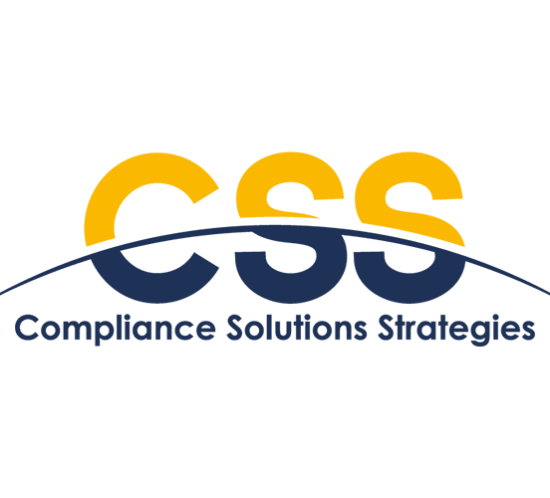Adoption of Investment Adviser Representative Continuing Education Requirements
As a follow up to our Coffee & Regs Podcast episode found here, we wanted to advise RIA that the Securities Division of the Vermont Department of Financial Regulation announced the adoption of Vermont Securities Regulations (S-2016-01) amended effective on December 16, 2021, which requires both state-registered and federal covered investment adviser representatives to complete annual continuing education requirements. Regulation S-2016-01 requires every investment adviser representative (IAR) to annually complete 12 CE credits to maintain their IAR registration. The 12 credits must include 6 credits of Products and Practices courses and 6 credits of Ethics and Professional Responsibility courses. IARs must complete courses delivered by course providers that meet specific criteria established by the North American Securities Administrators Association (NASAA). This information can be found on NASAA’s website, and we recommend frequent viewing of the website for updates and information related to course availability. In addition to Vermont, Maryland has also just announced the adoption of the CE requirement for RIAs.
SEC Staff Issues Risk Alert on Robo-Advisers
On November 9, 2021, the SEC’s Division of Examinations (“EXAMS”) issued a risk alert (the “Alert”) based upon recent examinations of registered investment advisers providing automated digital advice services (“Robo-advisers”) to their clients. In the Alert, EXAMS notes that nearly all of the Robo-advisers examined received a deficiency letter. Findings included the following issues with respect to compliance programs:
Compliance Program Failures
Many advisers noted in the Alert lacked policies and procedures specific to robo-advice, including assessing whether algorithms were performing as attended, ensuring rebalancing services were occurring as disclosed and/or ensuring the protection of client passwords. Cited firms failed to conduct a review of policies and procedures at least annually to determine their adequacy and/or effectiveness of their implementation. In addition, other advisers did not comply with the Code of Ethics Rule because they failed to receive required holdings and transaction reports and/or obtain written acknowledgements from all access persons with respect to the Code of Ethics.
Portfolio Management Oversight Failures
Portfolio management related issues included advisers who failed to adopt and/or follow policies and procedures to develop a reasonable belief that investment advice was in the client’s best interest. Others lacked written policies and procedures related to the operation and supervision of the automated platforms, increasing the risk of algorithms producing unintended results, rebalancing error and trade errors. EXAMS also found that many advisers lacked written policies and procedures with respect to best execution.
Disclosure and marketing Issues
EXAMS cited firms for inaccurate or incomplete disclosures in Form ADV, including weaknesses with respect or conflicts of interest, advisory fees and investment practices. More than half of the firms reviewed had advisory agreements that included prohibited hedge clauses and/or other exculpatory language.
Other advisers posted misleading or prohibited statements on websites, while others distributed materially misleading performance advertisements, including hypothetical performance presentations. Another common disclosure weakness related to inadequate or insufficient disclosure about the level of human interaction in providing advisory services.
La cyber-sécurité
With respect to cybersecurity programs, EXAMS cited a lack of policies and procedures regarding the protection of firm systems and responding to cybersecurity events. In addition, many advisers failed to have policies and procedures to comply with Regulation S-ID and Regulation S-P regarding the protection of client information.
Customized Investment Advice
Investment advisory programs generally rely upon safe harbor provisions of Rule 3a-4 under the Investment Company Act of 1940. Under the safe harbor, a program will not be considered an investment company so long as each client’s account is managed on the basis of the client’s financial situation, gives the client the opportunity to impose reasonable restrictions on the account’s management, the client is advised at least quarterly to contact the adviser with changes in his or her financial situation and the sponsor is available to the client for consultation. EXAMS found situations in which Robo-advisers were offering clients a generic investment program that did not meet the requirements of the safe harbor, but instead offering the same investment program to all clients.
While many of these issues are also seen in traditional advisers, robo-advisers should pay particular attention to these findings and review their compliance programs to ensure that strong policies and procedures are implemented.
For more information or to speak with a regulatory expert, please email info@cssregtech.com.
Subscribe today and receive our latest industry updates and articles.
You may unsubscribe at anytime with our simple “unsubscribe” link at the bottom of each communication. Please see our privacy notices below for further information, including a list of affiliates covered by this consent.
SFDR and Taxonomy Regulation Technical Standards Delayed Six Months
Important ESG news for EU market participants: The European Commission, by letter to the EU Parliament and Council, has delayed the date of application of SFDR and Taxonomy Regulation technical standards, from 1 July 2022 to 1 January 2023. This gives financial firms six more months to prepare and submit their first ESG disclosures that must conform to templates and detailed requirements set forth in those standards. The Commission added that disclosures of “principal adverse impacts” under the technical standards, with respect to the “reference period” of calendar year 2022, must be submitted by 30 June 2023.
ESMA Publishes Final Report on Draft RTS of Commodity Derivatives Under MiFID II Recovery Package
On 22 November 2021, ESMA published its Final Report on its draft RTS relating to commodity derivatives under the MiFID II Recovery Package. The Final Report includes proposals on the application procedure for position limit exemptions, as well as a methodology for national competent authorities to determine position limits under the MiFID II Recovery Package (whereby limits will apply only to agricultural commodity derivatives and to critical or significant commodity derivatives). This new draft RTS 21a will repeal the existing RTS 21. The European Commission has three (3) months to decide whether to endorse the draft RTS. The changes will apply from 28 February 2022.
SEC Proposes Modernization to Process for Applications
On November 4, 2021, the SEC released a rule proposal that would modernize certain filings submitted via the Electronic Data Gathering, Analysis, and Retrieval (“EDGAR”) system, including applications for exemptive orders under the Advisers Act and requests for confidential treatment of Form 13F.
13F Confidential Treatment Requests
The proposal would amend Form 13F and related rules under the Exchange Act and Regulation S-T to require that managers file requests for confidential treatment electronically via EDGAR. Consequently, the 13F Confidential Treatment Requests that filers currently submit to the Commission in paper, typically through the mail or by express delivery, would be required to be submitted electronically via EDGAR. The request for confidential treatment of 13F would be made as a separate, non-public filing. Requests also would include a confidential Form 13F report that is limited to the 13F Securities holdings for which the manager was requesting confidential treatment.
Under the proposed rule, managers would be required to submit an updated Form 13F at the expiration of the time period for which the manager requested confidential treatment or earlier (e.g., upon the denial of the 13F Confidential Treatment Request). Managers would also be required to identify on the Summary Page if confidential treatment was being requested for some or all of the manager’s holdings for the quarter-end period. The change is designed to allow the SEC and the public to identify whether a manager had omitted some or all of its holdings.
Other Amendments to Form 13F
The SEC also re-proposed minor amendments to Form 13F that would require filers to include their CRD and SEC file numbers, if any, in their identifying information. In addition, proposed technical changes would modify the rounding convention for the value of securities reported — filers would report the value of shares to the nearest dollar rather than the nearest $1000, as currently required.
Exemptive Orders under the Advisers Act
The proposed rule modernizes the process for submitting applications for exemptive orders under the Advisers Act by requiring that they be filed electronically through EDGAR. This follows a similar 2008 rule change that required electronically filing applications for exemptive orders under the Investment Company Act.
Currently, an applicant seeking Investment Company Act relief submits its application electronically to the Commission via EDGAR, while an applicant seeking Advisers Act relief submits its application, as well as a proposed notice of application, in paper and in quintuplicate. The harmonization would allow filers to submit a single joint application through EDGAR for exemptive orders under both Acts.
For more information or to speak with a regulatory expert, please email info@cssregtech.com.
SEC Chair Gensler Puts Private Fund Advisers in the Spotlight
In case you have not heard the news, Chair Gensler is focused on private fund advisers. The numbers may give you an indication as to why. In a November 11th speech at the Institutional Limited Partners Association Summit, he provided the following: US private funds have gross assets under management of $17 trillion (net assets at $11.5 trillion). Within those numbers, hedge funds have gross assets at $8.8 trillion, net at $4.7; and private equity funds have gross assets at $4.7 trillion, net at $4.2. Interestingly, this data, he said, is taken from Form PF as of Q4 2020 (which also means these numbers do not include the value of the private funds of advisers whose regulatory assets under management are less than $150 million, because these advisers are not filing Form PF and thus not disclosing to the SEC their fund values).
Furthermore, Chair Gensler said, private fund advisers often “touch so much of our economy.” For example, investors are often retirement plans, pension plans, and university endowments; so, as the context goes, the underlying investors are teachers, students, professors—i.e., not the traditionally high net worth individual; and often the investees are entrepreneurs who in turn are hiring everyday people to work in the private companies. So, ‘it all matters’ is the point, and Chair Gensler is on the watch to facilitate capital formation, protect investors, and maintain fair, orderly, and efficient markets.
What Private Fund Advisers Need to Know
With that authority, Chair Gensler seems poised to bring us a new period of private fund adviser regulation, launching with the data and knowledge learned in the past decade following the enactment of Dodd Frank in 2010 and the resultant requirements that many private funds register with and disclose certain information to the SEC. In his speech, Chair Gensler stated that
- he believes there can be greater transparency to fund investors around fees, expenses, and performance metrics, stating that the aggregate billings are “pretty significant to our economy and capital markets,” and that “hundreds of billions of dollars in fees and expenses are standing between investors and businesses.” He referenced that transparency could “help lower the cost of capital for businesses raising money” and “ultimately help workers preparing for retirement and families paying for their college education.”
- he believes that side letters can “create an uneven playing field among limited partners”
- he believes that there is an “opportunity to strengthen trust in the private funds market” and
- he believes that ‘it is time for us to put [the learning from Form PF] to use.”
Thus, he told the industry that he has asked his staff to consider:
- what recommendations they could make to bring greater transparency to fee arrangements
- whether certain side letter provisions should be prohibited
- what can be done to enhance transparency of performance metrics
- whether certain practices and conflicts of interest should be prohibited and
- whether there should be enhanced reporting and disclosure through Form PF or other reforms.
Thus, it seems that 2022 and 2023 will be interesting years for private fund advisers, far beyond the transition to the new advertising and marketing rule that must be complied with by November 4 2022 and even if the COVID-19 shockwaves do further wane.
Private fund advisers should stay tuned for rule proposals not just to stay abreast of the regulatory environment but also because the rule proposals are always accompanied by a comment period, and many advisers will want to take the opportunity to respond either individually or as part of a larger group. Chair Gensler invited the feedback, stating that the Commission benefits from comments and perspectives.
See the full text of Chair Gensler’s speech, here.
Interestingly, Chair Gensler’s speech was given one day after the Division of Examinations released a “follow up Risk Alert” on fee calculations. The follow up Risk Alert provides further detail on compliance issues observed in approximately 130 examinations that comprised the National Advisory Fees Initiative. Although in the Initiative the Division focused predominantly on advisory fees charged to retail clients, the follow-up Risk Alert underscores again the Commission’s attention to fee transparency and, in the Risk Alert, the Division expressly noted its relevance to “fund clients” (“many of the principles and disclosure obligations also apply to other types of client accounts (e.g., institutional and fund clients)”). See a full text of the follow-up Risk Alert, here. Stay tuned for more commentary on fee transparency and conflicts of interest in compensation arrangements.
For more information or to speak with a regulatory expert, please email info@cssregtech.com.







